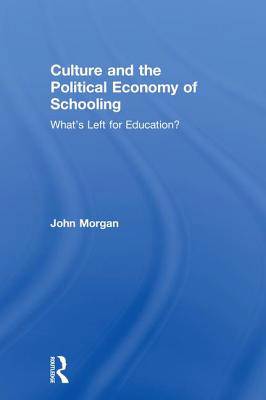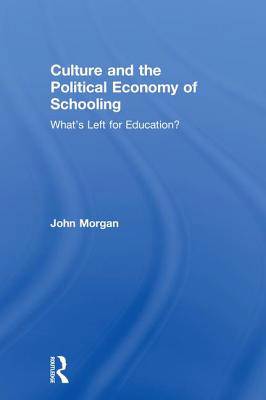
- Retrait gratuit dans votre magasin Club
- 7.000.000 titres dans notre catalogue
- Payer en toute sécurité
- Toujours un magasin près de chez vous
- Retrait gratuit dans votre magasin Club
- 7.000.000 titres dans notre catalogue
- Payer en toute sécurité
- Toujours un magasin près de chez vous
Culture and the Political Economy of Schooling
What's Left for Education?
John MorganDescription
Since the global financial crisis of 2007-08 the question of the aims of schooling have assumed greater importance. There has been no 'return to normal', yet young people are encouraged to 'Keep calm and go to university'. Culture and the Political Economy of Schooling explores the possibilities for the emergence of a progressive agenda for schooling.
Culture and the Political Economy of Schooling
provides educators and social scientists with the essential background required to understand changes in schooling since the Second World War. It introduces theories of the economic crisis, and explores their educational implications, before going on to provide accounts of how politics and culture have shaped debates about schooling. This cultural political economy approach is applied to issues such as social class, race, the brave new worlds of work, the dangerous rise of creative education, and the increasingly urgent question of inequality. The final parts of the book explore the educational challenges of the Anthropocene and the changing conceptions of knowledge in schools and finally consider alternatives to contemporary schooling.The students in our schools today will face a future framed by the twin crises of economy and environment, prompting an urgent rethink of education. Written in an accessible and engaging manner, this book is an essential guide for thinking about the past, present and futures of education. It will be of great interest to researchers and graduate students of education studies, curriculum studies, sociology of education, education politics and education policy.
Spécifications
Parties prenantes
- Auteur(s) :
- Editeur:
Contenu
- Nombre de pages :
- 220
- Langue:
- Anglais
Caractéristiques
- EAN:
- 9781138089280
- Date de parution :
- 13-09-18
- Format:
- Livre relié
- Format numérique:
- Genaaid
- Dimensions :
- 156 mm x 234 mm
- Poids :
- 503 g







